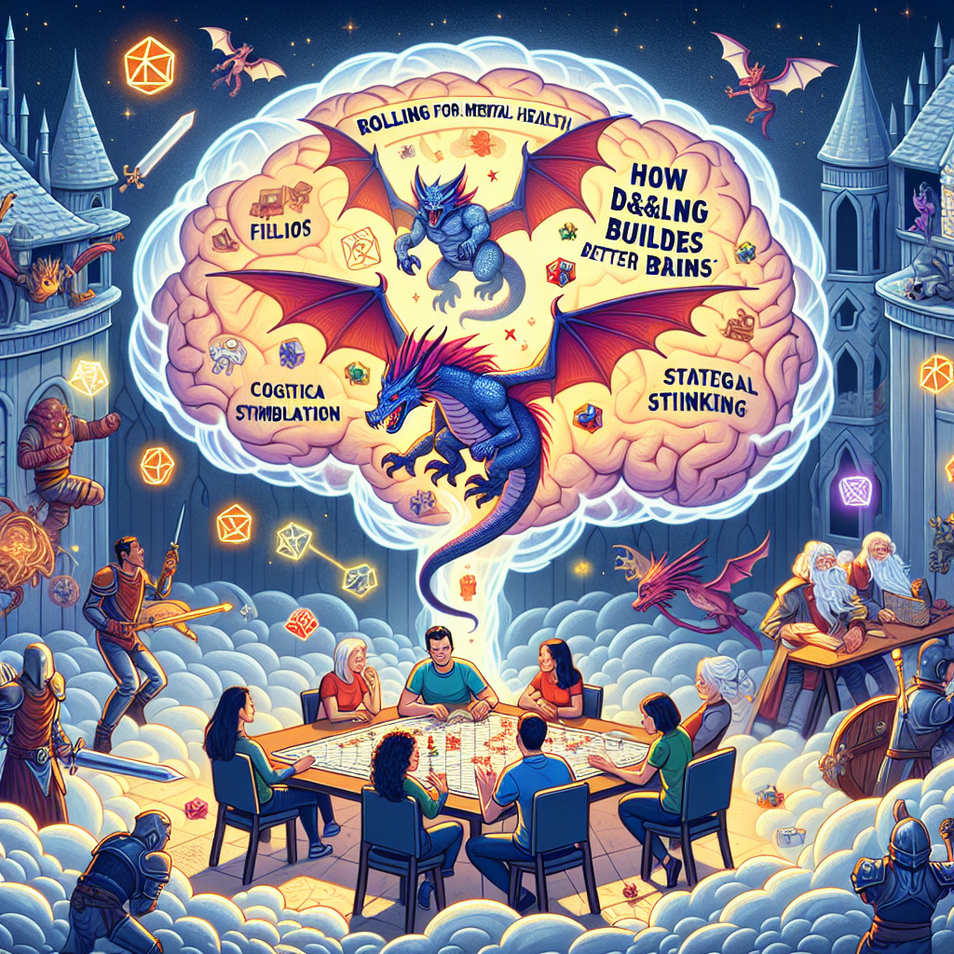Rolling for Mental Health: How D&D Builds Better Brains

What if battling dragons, casting spells, and strategizing through imaginary quests could actually be good for your mental fitness? It turns out that Dungeons & Dragons (D&D), the iconic fantasy role-playing game, is not only a playground for the imagination but also a gym for the brain. As its popularity resurges among diverse age groups, researchers and mental health professionals are beginning to recognize its unique cognitive and emotional benefits.
At its core, D&D is a collaborative storytelling experience that demands critical thinking, problem-solving, and quick decision-making. Players must navigate complex scenarios, often under time pressure, which strengthens executive functioning and strategic planning. This kind of mental multitasking keeps the brain agile, much like solving puzzles or playing chess—but with a lot more dragons involved.
Beyond the intellectual workout, D&D also nurtures emotional intelligence. Role-playing different characters enables players to explore empathy, resilience, and moral reasoning in safe, low-stakes situations. By stepping into another person’s shoes—be they elf, dwarf, or human adventurer—individuals practice understanding different perspectives, which can translate to real-world social skills and emotional regulation.
Therapists have taken notice, too. Some mental health professionals incorporate role-playing games like D&D into therapy sessions with clients struggling with anxiety, depression, or social isolation. The game acts as a structured yet flexible space for clients to express themselves, build confidence, and experiment with new ways of interacting—all while having fun.
In a world where screen dependency and social disconnection are increasingly common, Dungeons & Dragons offers a counterbalance: imaginative play, shared storytelling, and face-to-face collaboration. While it may look like just a game at first glance, it’s proving to be much more—a tool for personal growth and brain boosting that continues to surprise both scientists and storytellers alike.

